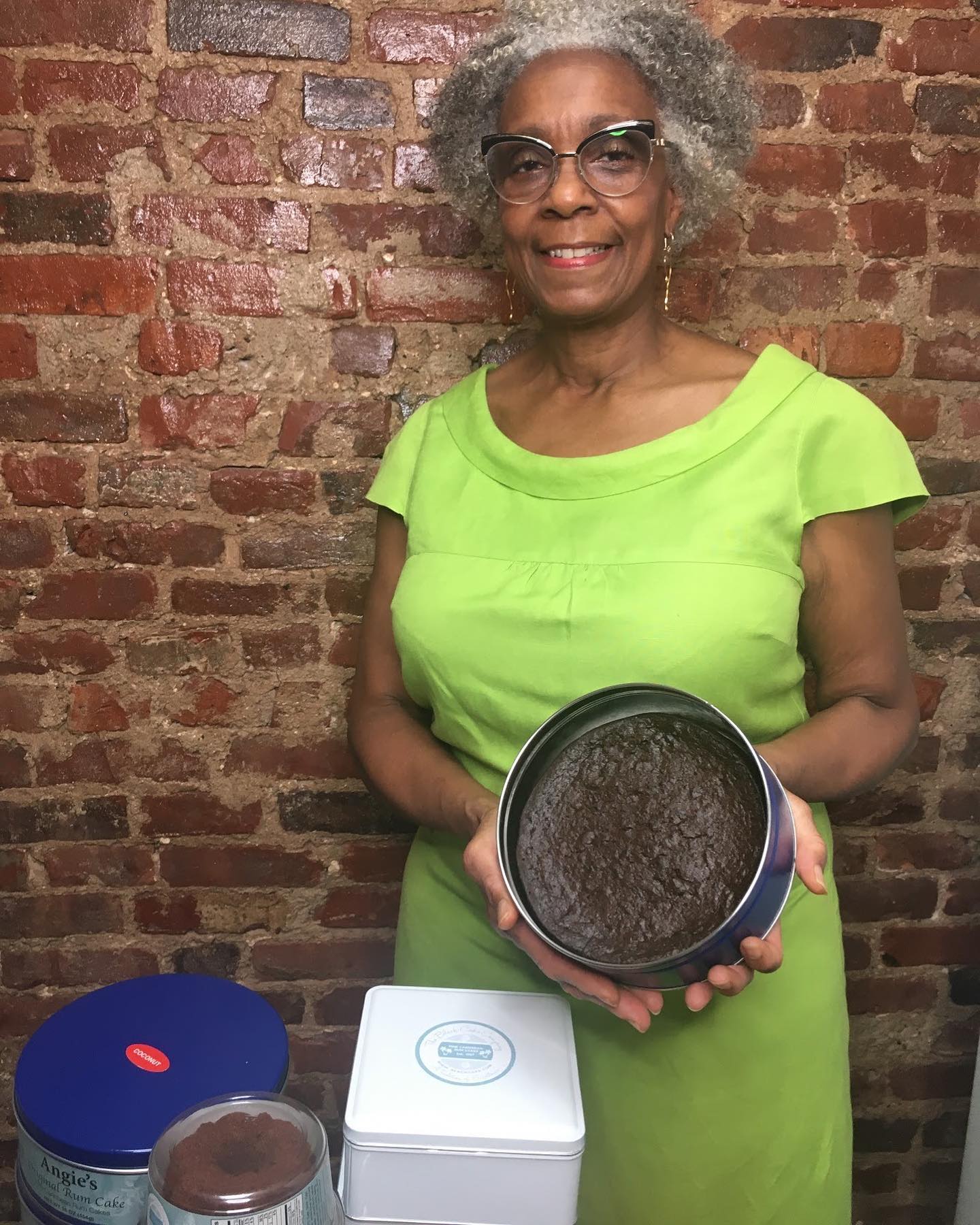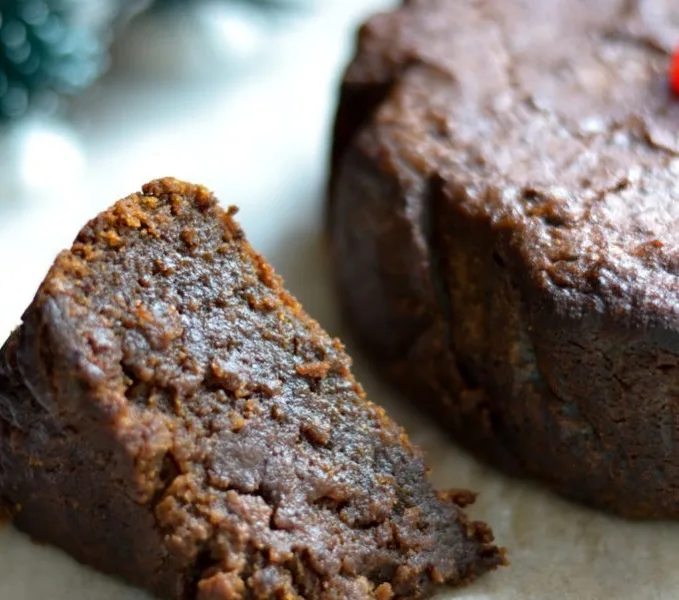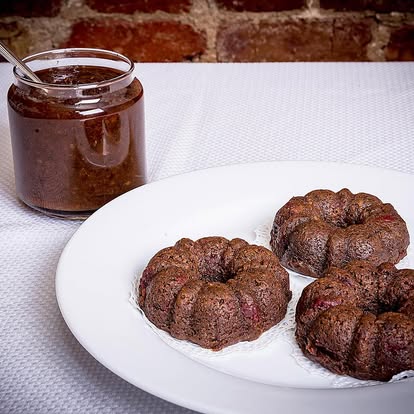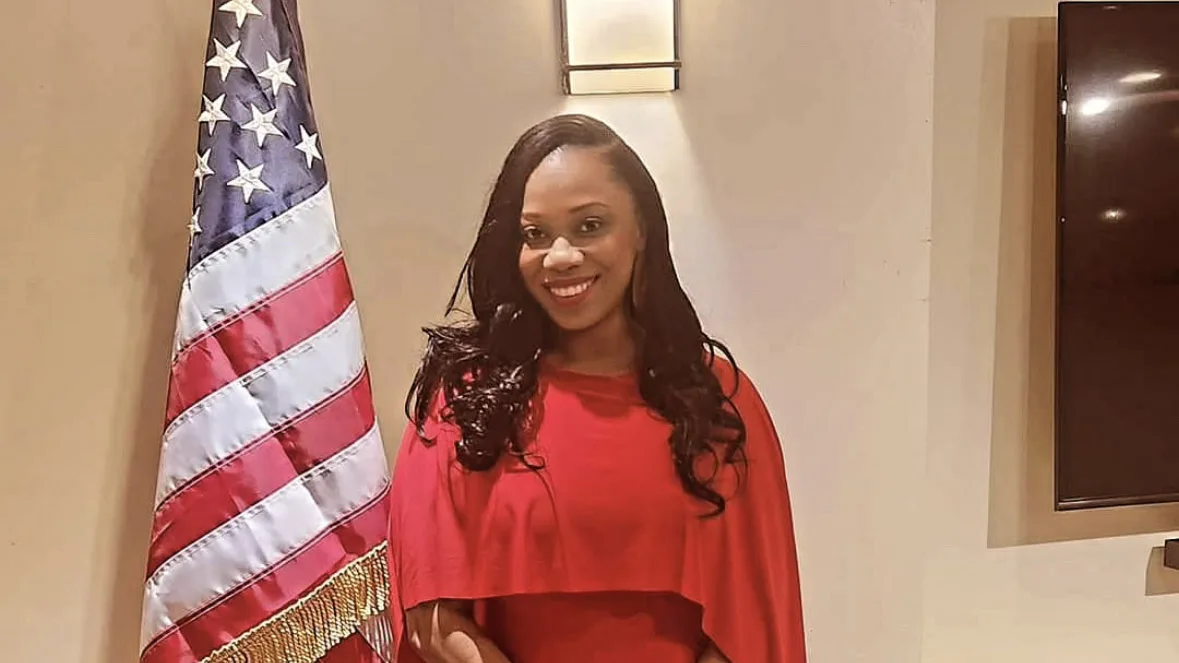When it comes to holiday traditions, no dessert captures the season quite like black cake for the Caribbean community. Typically made with dried fruit soaked in rum and burnt sugar, it’s rich, moist and steeped in heritage. But black cake is more than just a dessert — it’s a symbol of celebration, culture and connection.
Black cake, a Caribbean staple for weddings, birthdays, anniversaries and, of course, Christmas, requires care and dedication to make. “It’s not something that you get up in the morning and just throw some ingredients together,” says Angela Price, founder of The Black Cake Company, a mail-order company established in Brooklyn in 1987. “You have to grind the fruit. You have to set the fruit. It’s arduous, it’s hard to do, but it’s something I’ve always wanted to create a legacy around because it’s so important for our culture.”
Operating out of a small kitchen space in the Brooklyn Navy Yard, Price has spent nearly four decades preserving and sharing this beloved tradition that was introduced to her as a child growing up on the Caribbean island of Barbados.
“I remember eating black cake really for my entire life,” says Price. “It was always exciting at Christmas because it was always in the house at Christmas.”
While the business initially consisted of serving New York’s vibrant Caribbean community for events or family gatherings, which consists of roughly 20 percent of the 8.8 million people who call the city home, The Black Cake Company now caters to customers across the United States and around the world. The menu has even expanded, showing off the entrepreneur’s baking skills, with flavored rum cakes such as banana, chocolate, coconut and Caribbean punch.

“We currently have customers in places such as Germany and France,” she says. “From about March to September we’re actually shipping to Bermuda and so we’re shipping about 500 cakes a month to Bermuda.” These shipments are part of a private deal The Black Cake Company has with the British island territory’s airport.
Read more: This Year in Food: Immigrants Connecting to Home in NYC
Customers have openly expressed their satisfaction with the desserts. In one testimonial, one client who had never had black cake reviewed it as “absolutely delicious – moist and tender – richly spiced – dark deep flavours.”
Price’s journey into baking took years of dedication. She spent countless hours with her mother, learning how to make sweet treats. “I was always in the kitchen with my mom when she was baking,” she recalls. “She never really taught me, per se. I think I just picked it up by osmosis. But I learned basically everything from her.”
Pretty soon, baking became a passion. The Barbados native remembers how her cousins and friends would always ask her to bake cakes, and she loved making them for them. After moving to New York in 1972 and getting married, she wasn’t happy working at her husband’s data processing consulting firm. That’s when she says she prayed for guidance, not knowing that this would lead her to eventually become a business owner.

“Literally for three straight nights, I went to bed and asked a question, what should I do with my life? And every single morning I got up after those three nights, I heard ‘cakes.’”
Over 35 years later, the traditions of Price’s childhood are deeply ingrained in her business. Christmas is a particularly busy time for The Black Cake Company as the entrepreneur says the company sells over 2,000 cakes during the holiday season. “That includes our miniatures as well as our larger cakes because we do make miniature black cakes as well.”
As a mother and grandmother herself, the business means more than just selling cakes — it’s about preserving a piece of Caribbean identity and sharing it with the world. “Black cake has a lot of cultural significance,” says Price. “When you hear ‘wedding cake’ in the Caribbean, you’re talking about black cake.”
Read More: Try 5 Local Spots For Caribbean Food in NYC
As Price reflects on her journey, she remains grounded in her faith and grateful for the opportunity to share her passion. While she admits making black cake is a very time consuming process, she says the feedback from customers keeps her committed to preserving this Caribbean tradition. “Some people are saying, ‘Oh, it’s the best cake that I’ve ever had since my grandmother used to make it, or my aunt or my mom,’ when people have passed away and that kind of just keeps me going.”














